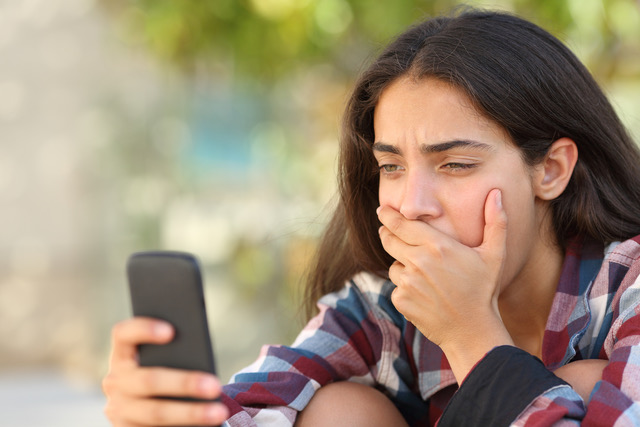Breaking Bad Smartphone Habits
Where would we be without our phones—the smart one that is? So many people have abandoned landlines and can’t imagine life without a smartphone. Not only is it a phone, but it’s also just about everything else you want it to be—a camera, an internet provider, an entertainment center and all the rest.
Honestly, I am as excited as the next person, though the thought of ditching my landline is a step too far. It’s my reliable device when all else fails. But I, too, am hooked on my smartphone and can’t leave home with it.
In my obsession with it, I have picked up a few bad habits along the way that are more trouble than they’re worth and can be quite relationship and health undermining, as well. You, too? I’m not surprised, so have dedicated this blog and a vlog (coming next week) to breaking bad phone habits such as:
Looking at your phone while in the company of another person
Using your phone during a meal or just having it on the table
Playing with your phone during class, a meeting, or a club
Sleeping with your phone or at least with it nearby so it is the first thing you see in morning and the last thing at night and sometimes in the middle of the night
What’s the problem, you might ask? These are norms nowadays! Everybody knows that. Well, I have to tell you, these habitual norms are not only rude, isolating, distracting and dismissive of others, they are also irritating, aggravating and sleep depriving. They have to go for the sake of effective communications, good emotional and mental wellbeing, and healthy relationships.
So how do we break these bad phone habits? I’ll come to that, but first let me tell you what doesn’t work permanently– exerting will power, analysing or guilting your way out the habits.
According to neuroscientists, habits are well, habitual, so you can’t will yourself out of them, think your way out, but it is possible to feel your way out of them through awareness. But first you have to notice the habit, experience it with awareness repeatedly, assess whether it serves you, is it still rewarding? Has it ever been? And finally when you and your brain experience the habit as unrewarding, you can break it.
Very straight forward isn’t it, but it takes focus and consistency to undo any habit that the brain has set to auto pilot. For example, I was an addictive cola drinker, especially in my 20s in New York City. Every morning, I had a certain cola and a cinnamon and raisin bagel with cream cheese for breakfast. I know. Yuck! No amount of telling me how unhealthy this was mattered. I knew it was a caffeine and sugar trap and all the rest and I could not stop until I experienced its undermining of my health repeatedly.
After years of doing this on auto pilot, I began to notice that every time I had a cola, I had palpitations. And the more aware I became, the more I saw that my habit was not rewarding. Pretty soon, I dropped all colas like they were hot coals and do not like them to this day.
Now about that smartphone, is it serving you or are you serving it at the expense of your sleep, emotional wellbeing, relationships and so on? How do you feel when someone else uses their phone in your company? How do you feel when you play with your phone on the down low? Is there a widening a gap between you and friends and family when the phone is all you can pay attention to? Are you losing sleep, feeling isolated, disconnected and all the rest?
In any case, turn the spotlight on the real time experience and feel the results of your behaviour in real time. You just might become fed up. I am getting there and wishing you Godspeed as you go forth to nail your bad smartphone habits.
For more hot tips on phone etiquette, check out Your Online Wellbeing Inside Out with Nicola Morgan and keep watching this space for my vlog next on the same subject.
Oh and yes, check out our short quiz on bad phone habits. Launch from the button below.
In the meantime, take care of you inside out and remember it is you I owe.



